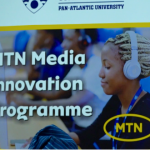UNICEF Funding Opportunity for Health Tech Startups 2024: Call for Frontier Technology Applications for Strengthening Systems for Health, Nutrition and Mental Health and Psychosocial Support. Apply below.
When is Application Deadline:
20th October 2023
Table of Contents
Tell Me About Award:
The UNICEF Venture Fund is looking to invest in Open Source frontier technology solutions that have the potential to create radical change in children’s health, nutrition, and mental health. We are offering up to US$100K in equity-free funding for early stage, for-profit technology start-ups that can improve the lives of children.
If your company is leveraging cutting-edge technologies such as artificial intelligence (AI), machine learning (ML), data science (DS), drones, blockchain, or extended reality (XR), we want to hear from you! We are specifically seeking companies registered in one of UNICEF’s programme countries that have impressive working prototypes and a commitment to Open Source licensing.
Type:
Entrepreneurship
Who can Apply?
UNICEF’s innovation portfolio approach prioritizes addressing the most challenging problems faced by children and young people through nine thematic portfolios, including maternal, newborn, child & adolescent health, nutrition, mental health, youth, and humanitarian response to reach the most vulnerable populations. These portfolios prioritize solutions that strengthen systems in remote and low or no connectivity areas, improve access to data, skills and services, and empower and actively engage young people.
UNICEF’s Venture Fund is currently looking to invest in companies that are developing software solutions using frontier technologies such as blockchain, drones, data science, artificial intelligence, machine learning, or extended reality to strengthen systems for health, including mental health.
Some of our most pressing questions include, but are not limited to:
Area 1: How might we improve equity and access to services for health, nutrition, mental health and psychosocial support for children and their families?
- New ways to facilitate social and behavior change that increase both demand and supply of services. Emphasis on appropriate services for persons with disabilities is encouraged.
- Strengthening existing solutions to personalize services (i.e., using human-centered design) that address diverse needs, including for persons with disabilities.
- Advanced analytics tools for health workers to monitor, assess and assist in decision making for needs and coverage for local service planning and delivery.
- Tools which identify and follow-up missed and underserved children, especially those that improve the understanding of the profile or characteristics of low service utilization.
Area 2: How might we improve data generation and analysis for health, nutrition, mental health and psychosocial support for children and their families?
- Models or alternative data sources to improve representation, accuracy and completeness of existing data for health, mental health and/or nutrition.
- Secure data management platforms and tools to improve data collection, access and sharing with a focus on decreasing data bias.
- Exploring non-traditional platforms for collecting new health and nutrition data, such as data on malnutrition (including wasting, stunting, underweight, and obesity); or preventive analysis data from social trends.
- Digital tools to monitor the food environment and/or leverage alternative sources of data such as citizen-sourced data to understand health behavioral insights, such as food availability and consumption patterns.
- Predictive analysis to understand changes in the world such as new patterns, risk factors, behavior insights or other contributors to pathologies and adverse outcomes, or diagnostic protocols and models.
Area 3: How might we strengthen workforce capacity, especially in fragile contexts and vulnerable populations for improving health, nutrition, mental health and psychosocial support?
- Upskilling frontline health workers for maternal, child and adolescent health.
- Offering specialized training and resources for youth engagement and advocacy such as extended reality tools for skilling.
- Augmenting workforce capacity in cultural competence, unconscious biases, and social determinants for health, nutrition and mental health.
- Building workforce capacity to deliver disability- and age-appropriate mental health and psychosocial support services.
We are not limited to the funding options mentioned. We are actively seeking companies that push the boundaries with frontier technologies in innovative and scalable ways with global relevance.
Female and youth-led/founded startups are encouraged to apply. If you’re ready to make a global impact, reach out!
Which Countries are Eligible?
UNICEF Member countries
How Many Awards?
Not specified
What is the Benefit of Award?
We are offering up to US$100K in equity-free funding for early stage, for-profit technology start-ups that can improve the lives of children.
How to Apply:
Visit Award Webpage for Details









